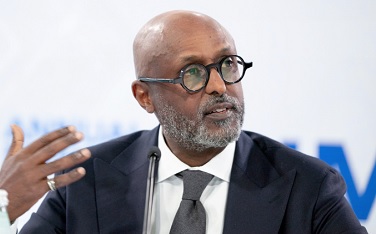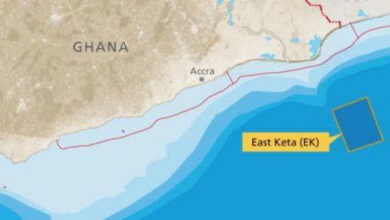
IMF commends Ghana’s approach to exchange rate management
The Director of the African Department at the International Monetary Fund (IMF), Abebe Aemro Selassie, has commended Ghana’s recent progress in stabilising its exchange rate, and for adopting a sound foreign exchange (FX) management framework.
As a step in the right direction, Mr Selassie explained that Ghana had moved from a period of uncontrolled depreciation and market anxiety to a more stable macroeconomic environment marked by declining inflation and renewed investor confidence.
Economic recovery
The IMF director explained that the economy was beginning to recover, inflation was beginning to decelerate, and a sign of confidence was allowing the exchange rate to stabilise and, maybe even, begin to appreciate.
“Like all such things, of course, there are pros and cons.
One is the competitiveness issue that you mentioned.
“It is not the only thing that will affect competitiveness.
There are many other things.
But an excessively appreciated exchange rate can also have a bearing on this.
So, as always, this is why we are so full of admiration for policymakers in the region,” Mr Selassie said in an answer to a question.
Shallow capital market
Mr Selassie stated that when dealing with relatively shallow capital markets, foreign exchange markets, money markets, this kind of volatility could be very disruptive to the real economy.
“So, it is about trying to strike a balance.
Too much interference can itself cause problems when you have a lot of froth. Identifying them and trying to calibrate policies to minimise that froth is key.
“So, it really is about striking the right balance,” he stated.
The IMF Director, however,stated that Ghana’s economy was moving in the right direction and the appreciation reflective of some fundamentals.
Ghana’s economic outlook
Ghana’s economy presents an encouraging outlook, with inflation continuing its downward trajectory to 9.4 per cent in September 2025, from as high as 54.1 per cent in December 2022.
The latest drop, however, marks the ninth consecutive month of decline and the first return to single-digit inflation in four years.
Food inflation dropped significantly to 11 per cent, while non-food inflation eased further to 8.2 per cent.
These positive trends highlight the impact of consistent monetary policy, prudent liquidity management, and sustained fiscal consolidation.
The growth momentum is equally impressive, as figures from the Ghana Statistical Service indicate that the economy expanded by 6.3 per cent in the second quarter of 2025.
Non-oil Gross Domestic Product (GDP) grew by 7.8 per cent, driven largely by strong performances in the services and agricultural sectors.
The Composite Index of Economic Activity also rose by 6.1 per cent in July, signalling continued expansion in domestic demand and production.
Externally, the outlook remains robust. Ghana recorded a trade surplus of $6.2 billion within the first eight months of the year, while international reserves climbed to $10.7 billion—equivalent to 4.5 months of import cover.
The cedi has appreciated by 21 per cent year-to-date, positioning it among the world’s best-performing currencies.
This outstanding performance, therefore, underscores the growing credibility of Ghana’s policy framework and the renewed confidence of investors and markets alike.




